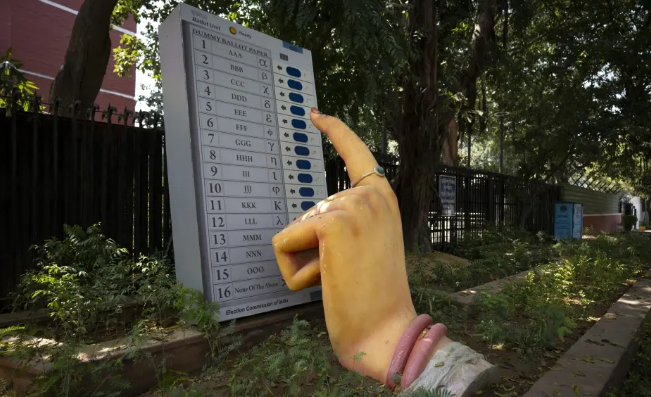Election’s missing questions (GS Paper 1, Society)

Context
- As the election season approaches, the assessment of India’s democracy varies depending on who is asked.
- While many Indians perceive democracy through the lens of free and fair elections, elected governance, and executive implementation of laws, international agencies and domestic liberals often highlight shortcomings such as erosion of constitutional values and institutions.
Diverse Interpretations:
- The definition of democracy and its expected outcomes differ among various segments of society, ranging from taxi drivers to college students.
- While most Indians prioritize electoral democracy, international agencies and domestic critics emphasize broader indicators such as freedom of expression, religious practice, and fair trials.
Democracy as a Means of Progress:
- Functional View: Viewing democracy as a means for societal progress, particularly in material, cultural, and social aspects, underscores the importance of informed choices and collective action. Electoral democracy serves as a mechanism to implement this broader objective, facilitating accountability and development.
- Role of Knowledge and Information: Emphasizing the role of knowledge and information in democracy, particularly through reports and platforms for discussion provided by universities and scientific agencies. Examples from countries like Canada highlight how information cycles contribute to prosperity and societal well-being.
Challenges in Indian Society:
- Lack of Information and Accountability: Contrasting the situation in India, where issues like irregular water supply, poor infrastructure, and inadequate healthcare often go unacknowledged or unaddressed. The absence of comprehensive reports and community participation limits accountability and efficient governance.
- Administrative Deficiencies: Highlighting administrative shortcomings at both district and national levels, where critical issues like air pollution and education quality receive insufficient attention. Despite the severity of these problems, they often do not feature prominently in electoral discourse or policy agendas.
Educational and Civic Challenges:
- Quality of Education: Addressing concerns about the quality of education in India, as highlighted by reports indicating low levels of basic literacy and numeracy among youth. This raises questions about the populace’s ability to engage with complex issues and make informed decisions.
- Functional Democracy or Electoral Ritual?: Reflecting on whether India is truly a functional democracy or merely a nation that regularly holds elections. The discrepancy between democratic ideals and the realities of governance underscores the need for deeper introspection and reform.
Conclusion:
- Advocating for reforms that enhance accountability, transparency, and civic participation in India’s democratic processes.
- Recognizing the importance of addressing systemic deficiencies to ensure that democracy serves as a vehicle for societal progress and collective well-being, rather than merely a ritualistic exercise.


